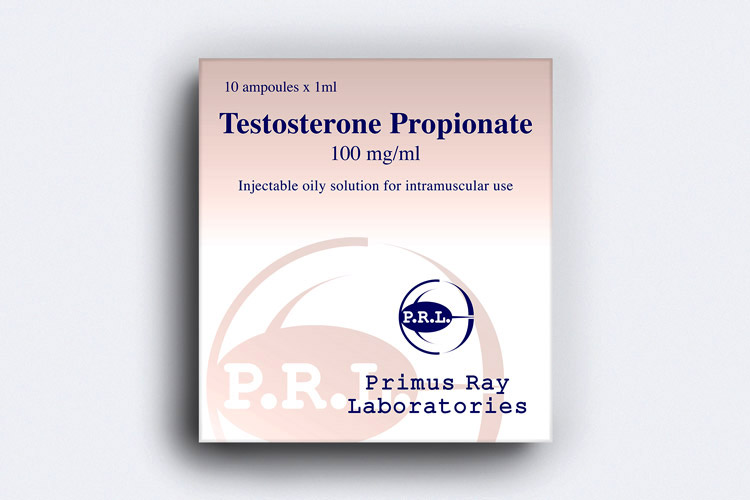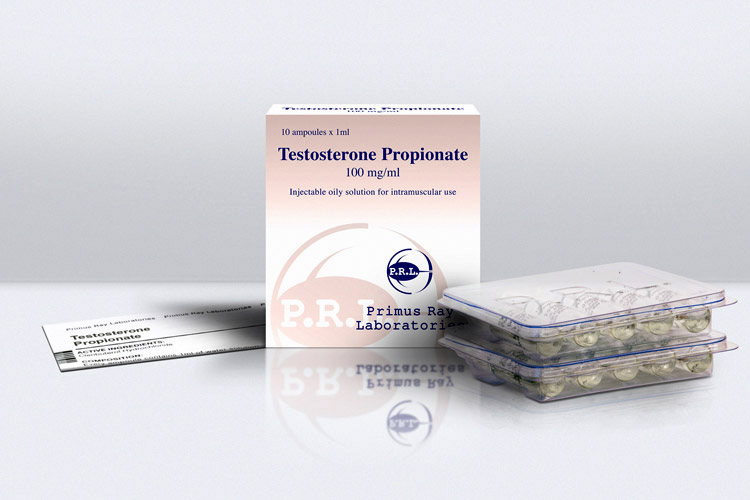TESTOSTERONE PROPIONATE
Description
Test-Prop 100 (Testosterone Propionate injection, USP) provides testosterone propionate, an esterified derivative of the primary endogenous androgen testosterone for intramuscular use. In bioactive form, androgens have a 17-beta-hydroxy group, the esterification of which produces esters of testosterone which undergo hydrolysis in vivo; producing a delayed release of the bioactive testosterone. Each ml of Test Prop contains 100mg of testosterone propionate in ethyl oleate (base oil).
Details
- Test – Prop 100 – Testosterone Propionate USP 100mg
- Ethyl Oleate q.s.
- presented as 10 x 1 ml ampoules per box (100mg/ml)
Clinical pharmacology
Endogenous androgens such as testosterone are responsible for the development and growth of the male sexual organs and post-adolescent secondary sex characteristics. Androgen effects include but are not limited to the maturation of the penis, scrotum, prostate, seminal tubules, laryngeal enlargement, vocal cord thickening, changes in muscle mass and fat distribution, and the development and distribution of male hair (facial, pubic, chest, back, axillary).
Androgens have been linked to increased protein anabolism and consequent decreased protein catabolism.
Androgens increase retention of sodium, potassium, and phosphorus. Androgens decrease urinary excretion of calcium.
Androgens are responsible for the growth spurt of adolescence and the aromatization of androgens to estrogens for the eventual termination of linear growth, which is brought about by fusion of the epiphyseal growth centers. In children, exogenous androgens accelerate linear growth rates but may cause a disproportionate advancement in bone maturation. Use over long periods may result in fusion of the epiphyseal growth centers and termination of the growth process. Androgens have been reported to stimulate the production of red blood cells by enhancing the production of erythropoietin stimulating factor.
Androgens may suppress gonadotrophic function of the pituitary. During exogenous administration of androgens, endogenous testosterone release is inhibited through feedback inhibition of pituitary luteinizing hormone (LH). With large doses, spermatogenesis may be suppressed through feedback inhibition of pituitary follicle stimulating hormone (FSH).

